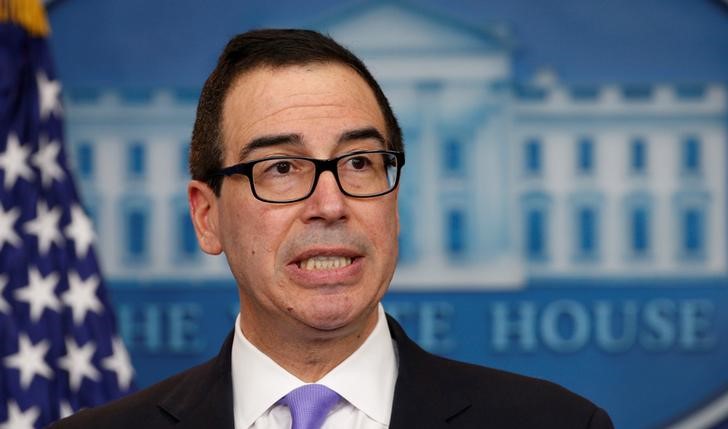By Nick Brown
(Reuters) - Puerto Rico Governor Ricardo Rossello said on Friday he was "committed to establishing a working relationship" and fostering "open dialogue" with U.S. Treasury Secretary Steven Mnuchin, after the two met in Washington.
Rossello, who took office on Jan. 2, met with Mnuchin to discuss his efforts to "put Puerto Rico's financial house in order," a statement from the governor's office said.
Rossello has signed more than 20 bills and executive orders aimed at cutting spending and fostering economic growth, but Puerto Rico faces a long haul out of an economic crisis characterized by a 45 percent poverty rate, near-insolvent public pensions and healthcare systems, and almost $70 billion in debt.
Under former President Barack Obama, the Treasury took a hands-on approach in Puerto Rico, working with federal lawmakers on legislation aimed at giving the U.S. territory a way to cut debt. President Donald Trump has given little indication of how his administration may handle Puerto Rico.
The island's finances are under the supervision of a federally appointed board. Rossello on Tuesday is scheduled to present the board with a 10-year blueprint for the island's fiscal turnaround.
The board has said the plan should find $4.5 billion a year in savings and revenue, including a 10 percent reduction in pension benefits and $1 billion in annual savings on healthcare spending.
In an interview with Reuters on Thursday, Rossello said his plan will generally meet the board's criteria, with some exceptions, particularly on healthcare spending.
"A $1 billion reduction in healthcare would not only severely hamper the people of Puerto Rico, it would also cripple what is a healthy industry, the healthcare industry," Rossello said.
Puerto Rico's Medicare system is on the brink of insolvency, in part because, as a U.S. territory, it receives proportionately less federal reimbursement than states.

Rossello has said he will lobby the federal government to increase such funding, but the board has said the turnaround plan should not assume any funding changes or help from Washington.